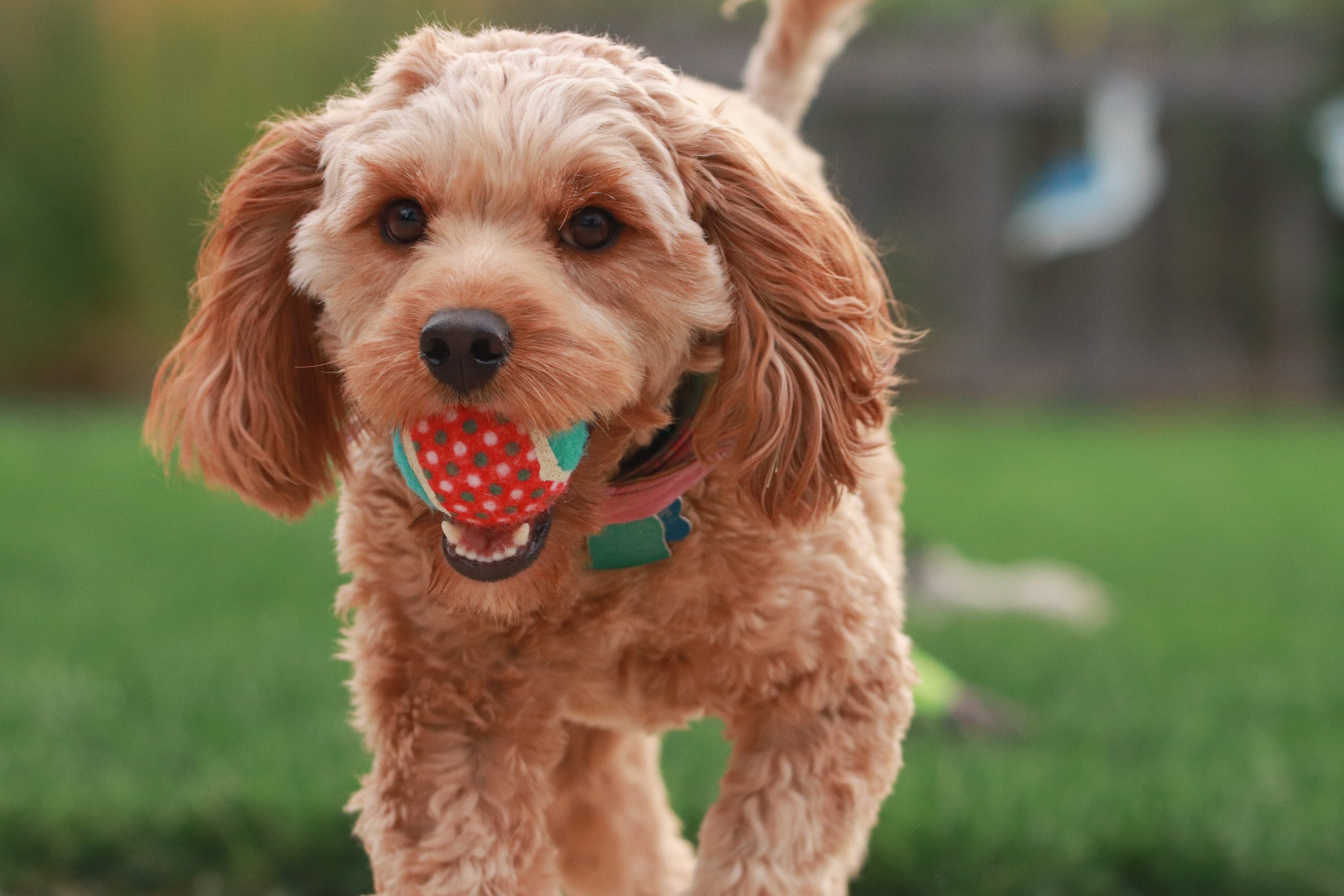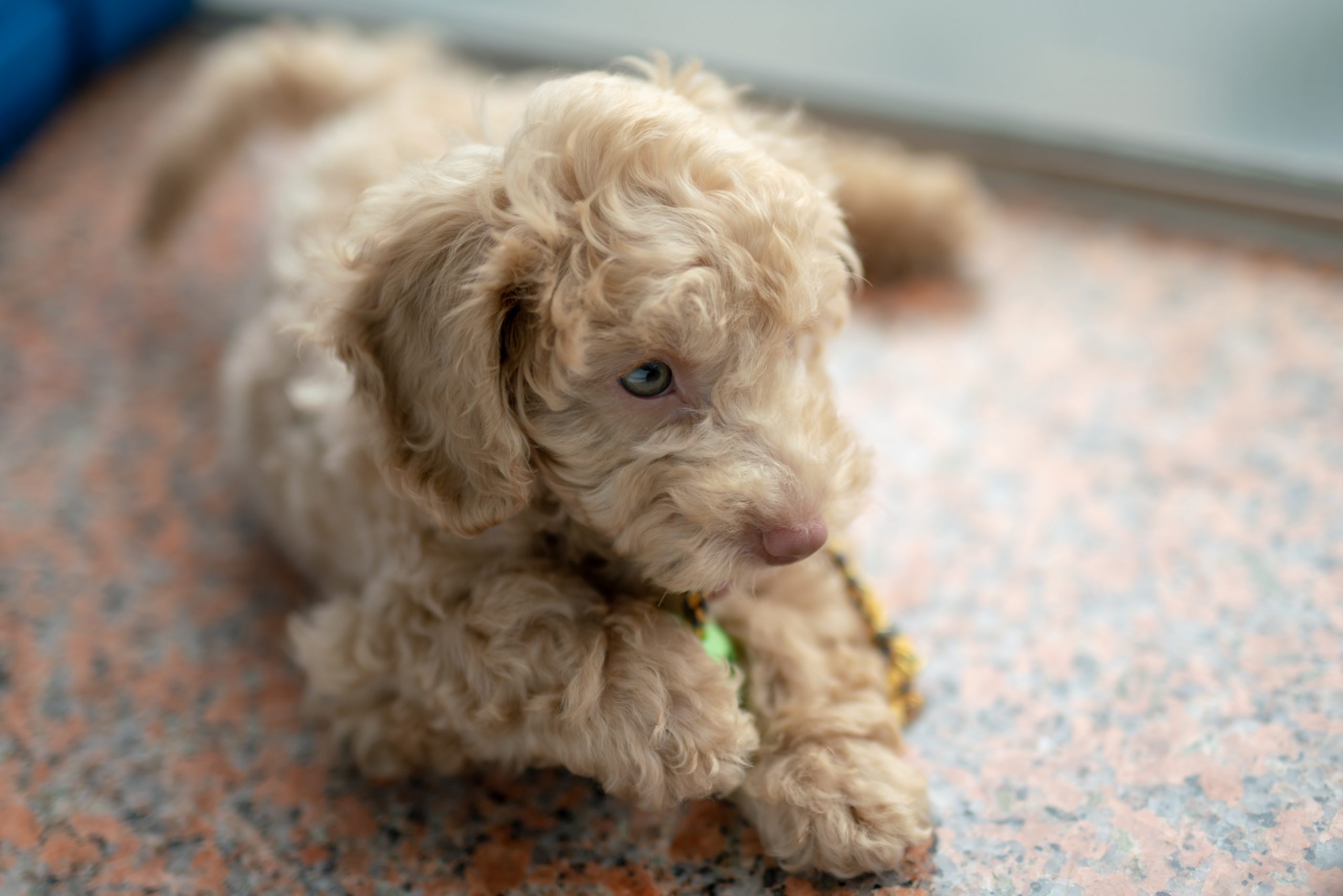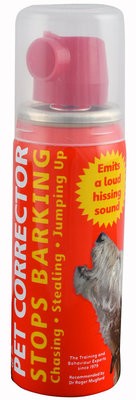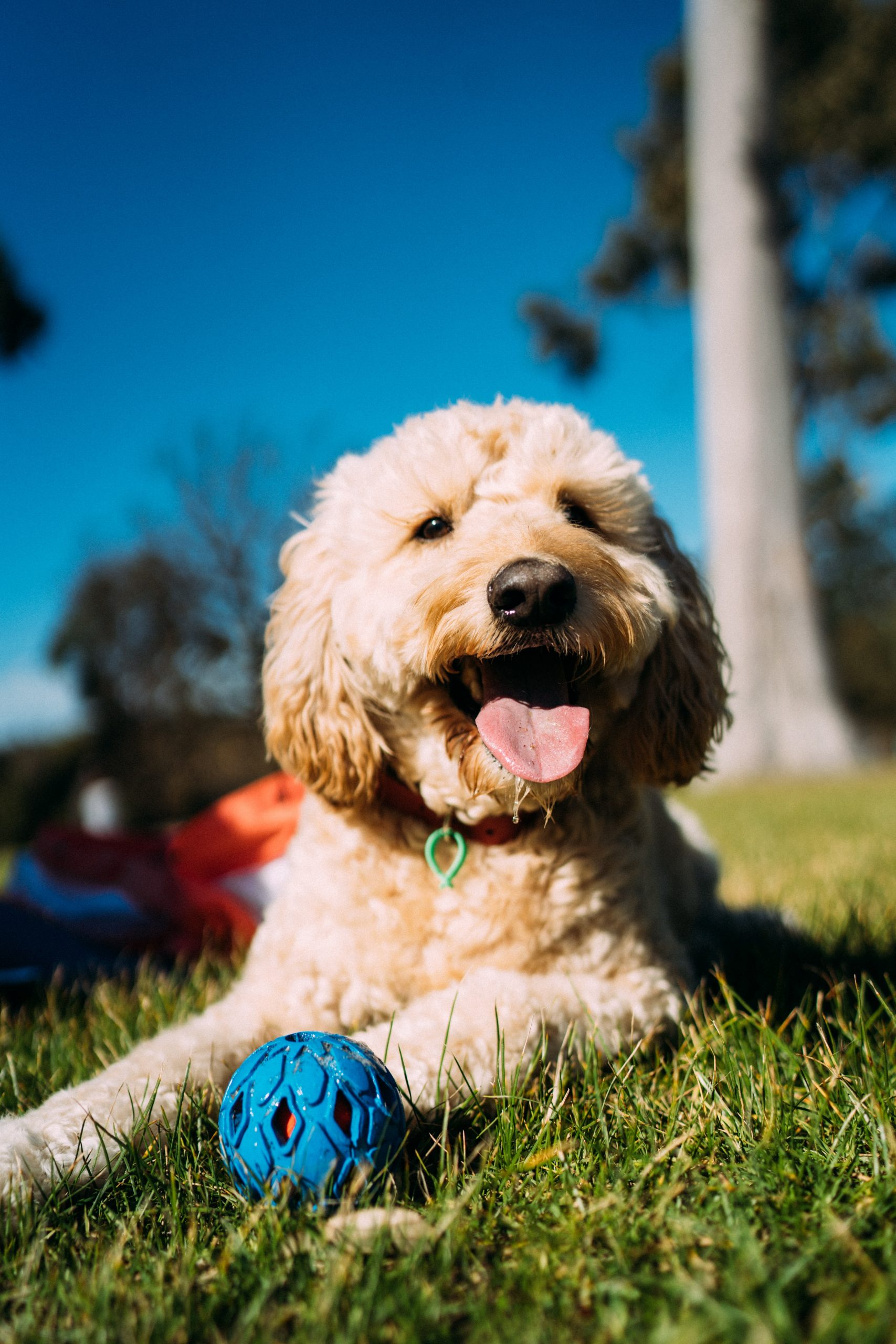No products in the cart.
Training
Stop Your Puppy From Biting And Chewing
Last updated on September 17, 2021
By Brenda Schlabach
Training
Last updated on September 17, 2021
By Brenda Schlabach
Is your puppy biting and chewing everything he can get his mouth on? Is it normal for puppies to bite so much? Does my puppy like to chew on your fingers and toes? Should you stop your puppy from biting and chewing?
If these are questions you've had, we've got you covered! Here's a breakdown of puppy biting and chewing behaviors, and what you should do about it.

It is your puppy's natural instinct to chew and bite. Just like human babies, chewing is how how puppies explore and learn about the world. They receive sensory information about objects, each other, and even you.
That's why sometimes when you go to pet or play with your pup they seem to be all teeth, and want to "mouth" your hands and feet all the time.
Another major reason puppies chew a lot is because it soothes and reduces the pain of teething.
So, yes, while nipping is completely normal for your puppy, and chewing is a necessary part of their development, excessive biting can become a problem.
No one likes a dog that bites. Not only is it painful, but an adult dog that bites can be downright dangerous, especially around children and other pets.
Although play biting in puppies rarely becomes aggressive, the sooner you curb this behavior, the better.
It may seem cute at first to let your cuddly pup nibble your fingers, but it's not so fun anymore when your little puppy becomes a large adult, with an adult set of razor-sharp teeth.
Even if your puppy does not bite humans or other animals, they can cause a lot of damage to personal belongings, if not trained properly.
You may catch your puppy biting or chewing on the rug, the furniture, the woodwork, his crate, electrical cords, clothing, shoes, chair legs, pillows, etc., etc. Not only can such objects be costly to replace, they can be very detrimental to your puppy's health, if ingested.
So what can you do? What are some simple steps you can take to make training easier, and your dog happier? Learn how to prevent your dog from continuing in destructive behaviors, and putting his health at risk.
Below are our top 5 training tips on discouraging your puppy from excessive chewing and biting.

It is important for dogs to learn how to moderate the force of a bite. As was afore-mentioned, puppies instinctively bite but they naturally learn bite inhibition by nipping their littermates or mother. If the puppy bites too hard, the other dog probably will yelp, and turn away, telling the puppy "Ouch! That hurts!"
In this way, the puppy learns that biting provokes the other dogs to stop playing, and he makes his bite softer, so his playmates won't leave.
You can adopt the same method. Your puppy may start to play-bite with you, because to them, that is normal dog behavior. When this happens, make a high pitched "Ow!" sound, and immediately stop all play. If your puppy is persistent, move away. Leave the room briefly if necessary.
You are sending a clear message to your dog that biting hurts, and will not get him any rewards or attention. Repeat this every time your dog bites, and he will soon learn what is and is not acceptable.
If you do not do this with your puppy, he will have a much harder time learning how to control his bite.
If your dog does back off, be sure to praise him. It's important that your puppy understands that gentle play continues, and painful play stops.
Using toys is a great way to redirect your dog's attention. It's a good idea to have adequate toys at hand in all times.
When your puppy starts nipping you, or chewing on inappropriate objects, you can substitute with a toy. Doing this will let your puppy know that toys are acceptable to bite and chew to his heart's content.
Provide a variety of interesting and new toys, to encourage your puppy to play with them, instead of gnawing on you or your possessions.
Start with some soft rubber toys, a fuzzy stuffed toy with a squeaker, a floppy rope toy for a little tug-of-war. Cow and pig ears also make a great chew toys, as well as puzzle toys filled with kibble or treats to keep your pet occupied.
Dogs have different preferences about what they like - just like people. So it may take a bit of trial and error to find out what works best for you and your pup. Remember that puppies have an instinctive need to bite and chew. If you are not providing your puppy with appropriate things to chew on, then it's quite likely he will find his own!
But what if your puppy likes to chew on furniture and baseboards? If your fur baby has a particular affinity for things that can't be placed easily out of reach, you have two options.
First, you can use a baby gate or other barriers to keep your puppy from accessing these areas.
Or you can using use deterrent sprays. Instead of constantly scolding or punishing your dog for chewing on the woodwork, using deterrents will be much less stressful for both you and your puppy.
Deterrent sprays come in several types. Below are two kinds that we highly recommend.
One type of deterrent is compressed air that comes in an easy-to-use spray can. It will stop your misbehaving dog in his tracks, by producing a hissing noise. This sound is thought to be similar to the hiss of a snake, which dogs instinctively recognize and dislike.
You even have the option of buying a holster with a handy clip that attaches to any pocket or belt for instant availability where ever you go.

If you catch your puppy misbehaving, use this handy Pet Corrector spray to stop his naughtiness in an instant!
The second type of deterrent is a spray that combines natural, behavior modification pheromones with an attention-getting sound.
This deterrent uses noise and pheromone technology to help redirect your dogs attention, and it comes in an easy-to-use spray can.
Pheromones combined with an attention-grabbing noise is clinically proven to stop negative behaviors quickly, safely and effectively.

Say No! No! to your pet's unacceptable behaviors. Stop mischief fast with this attention-getting solution.

Sometimes in those first weeks of puppy parenting it can feel like "No! No!" and "Bad Boy!" is all you say all day long. But remember that your adorable furry friend also needs encouragement!
As important as it is for your dog to learn what "No" means, it is equally, if not more, important that you encourage him. Praise him with a "Good dog!" or a treat or a pat for every step of progress he makes in the right direction. Positive reinforcement will go a long way toward getting behaviors you're looking for.
Keep in mind that your puppy is not biting and chewing your things out of spite, neither does play-biting mean he is vicious. Your puppy chews and bites because it is his inborn nature.
It can be tempting to become frustrated, especially when he has chewed your favorite shoes AGAIN, but you will by far have the best results by staying calm and positive.
Puppy training takes a tremendous amount of consistency, commitment, and patience. Your puppy may not always understand what you are trying to teach him, but it is always best to stay calm and focused, and eventually, he will learn!
Shouting at your dog or using harsh physical punishments can frighten him, which will only make his biting habit worse - and can lead to real aggression. Again, positive reinforcement, or redirection using toys or deterrents will get you much better results, much quicker.
If you're feeling frustrated with your dog's progress, remember is that there is light at the end of the tunnel! Most puppies will outgrow their chewing nature. Adult dogs (2-3 years) rarely use their mouths the way puppies do.
Be loving and consistent and your furry friend will learn eventually - I promise!
Love This Post? Share It!